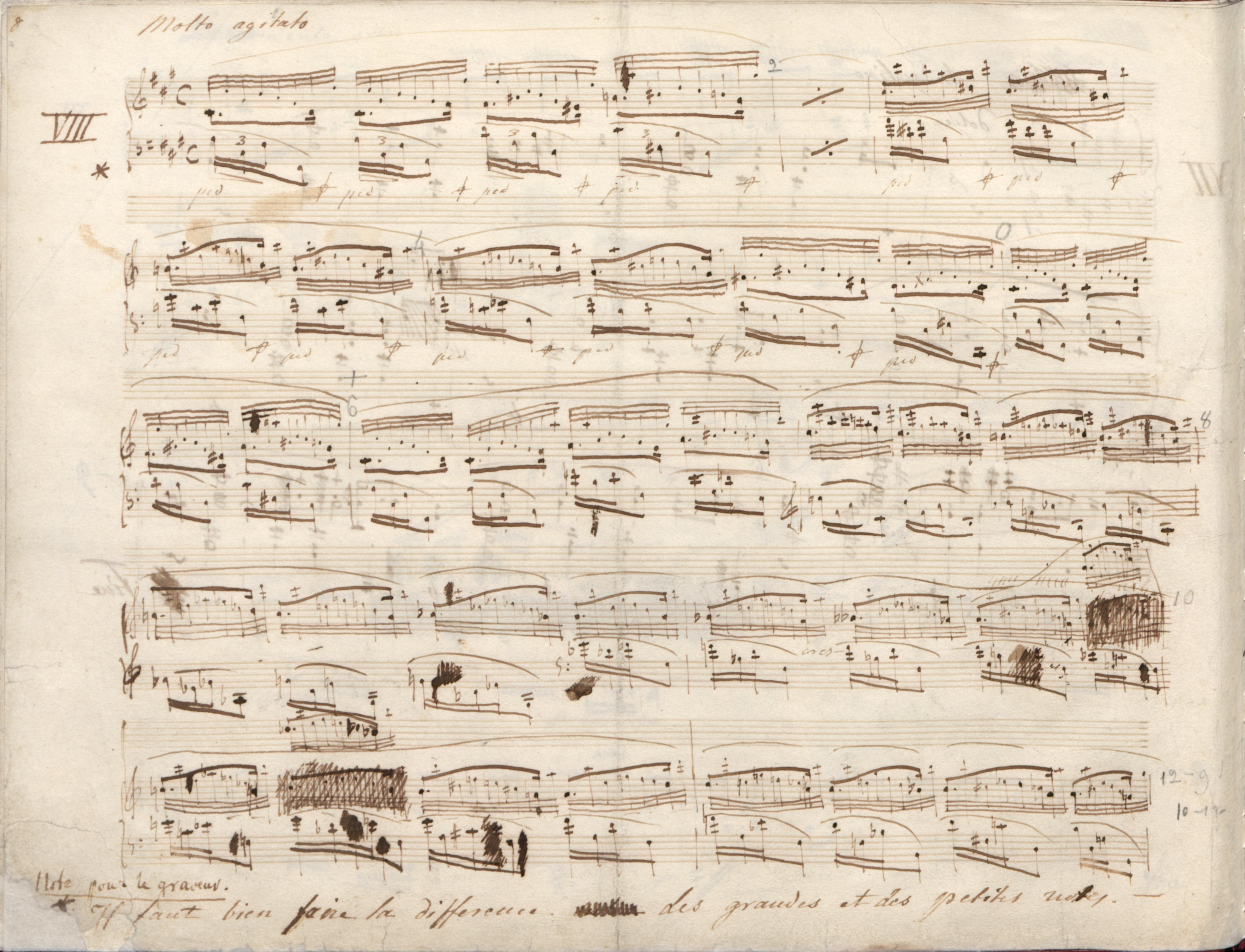Op. 2, Variations in B♭ major
Op. 10, 12 Etudes
Op. 11, Concerto in E minor
Op. 21, Concerto in F minor
Op. 22, Polonaise in E♭ major
Op. 24, 4 Mazurkas
Op. 25, 12 Etudes
Op. 26, 2 Polonaises
Op. 27, 2 Nocturnes
Op. 28, 24 Preludes
Op. 30, 4 Mazurkas
Op. 35, Sonata in B♭ minor
Op. 50, 3 Mazurkas
Op. 63, 3 Mazurkas
Op. 64, 3 Waltzes
(Op. 4), Sonata in C minor




Op. 28 No. 8, Prelude in F♯ minor
In this Prelude Chopin generally did not use accidentals before the top notes in broken octaves – see b. 1-4. In the discussed bars, the problem concerns the following cases:
- in b. 5 e
 2,
2, - in b. 7 d
 3 and d3,
3 and d3, - in b. 8 c3, c
 3 and b
3 and b 2,
2, - in b. 9 b
 2, b
2, b 2, a
2, a 2, g2 and c3,
2, g2 and c3, - in b. 10, c3, c
 3, b
3, b 2 and a2,
2 and a2, - in b. 11 c3 and b
 2,
2, - in b. 12 g2, f2 and g
 2,
2, - in b. 13 g
 2, f
2, f 2 and c
2 and c 2.
2.
Such a notation is in A (→FC,FE), whereas EE1, EE2, GE1 and GE2 added the majority of the necessary accidentals (17, 20, 21 and 22 out of the necessary 23, respectively).
Compare the passage in the sources »
category imprint: Interpretations within context; Differences between sources
issues: EE revisions, Accidentals in different octaves, GE revisions, Inaccuracies in A, Errors repeated in GE, Errors repeated in FE, Errors repeated in EE
notation: Pitch

